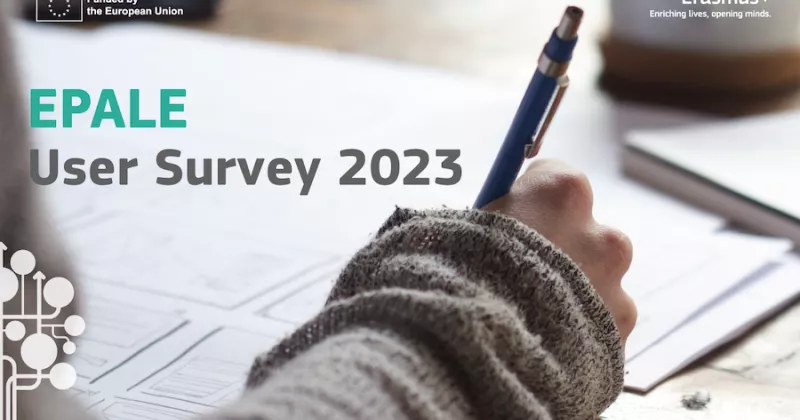We only have one home: Manifesto on Adult Learning and Education for Sustainability

2021 was a tumultuous year. The continued global pandemic notwithstanding, several other events made the headlines in Europe. From a heatwave that caused disastrous wildfires in Greece, Turkey and Italy, to deadly floods that swept through a large part of western Europe, the effects of the climate crisis became as apparent as they are devastating.
“The science is saying the future of homo sapiens will depend on whether it will be able to evolve to homo ecologicus, meaning we have to change our behaviour and lifestyles to be able to survive,” says Erdem Vardar, Director of YUVA. YUVA is a non-governmental organization in Turkey that aims to bring together the concepts of adult education, poverty eradication, nature, and human rights. “Adult learning organisations have the inevitable responsibility to provide the majority of the population, adults, with the necessary skills and knowledge to become global citizens who are aware of the consequences of their actions and are ready to make choices for the only home we have.”
Policy support is key in achieving sustainability
The roles and responsibilities of ALE organisations in the face of the climate emergency were discussed by the participants of a workshop on green education, which took place last October at the EPALE Community Conference and was facilitated by Erdem and his colleague Özge Sönmez. The aim of the workshop was to draft a Manifesto on Adult Learning and Education (ALE) for Sustainability, recognizing the role that ALE organisations can play in addressing the climate crisis and listing the needs of the ALE community to drive a long-term change.
This is hardly a new topic for ALE organisations: sustainable food production, consumer education or disaster risk resilience are just some of the topics tackled by ALE providers across Europe. YUVA also has valuable experiences to share, such as its Earth Citizenship programme, which includes a series of trainings on ecological literacy, and train-the-trainer courses for their participants. Erdem underlines that the success of such initiatives largely depends on the political will.
“We are working as a network of NGOs and municipalities on ecological literacy, which was initiated by YUVA. One of the missions of the Ecological Literacy Network (ELN) is to advocate for increasing quality and coverage of adult learning at local municipal level and national governmental level,” says Erdem.
According to Erdem, there is more interest in the topic at both levels, not only because of the increasing extreme weather events and wildfires due to climate change, but also the pandemic, which experts relate to environmental degradation. “As a result, together with the Ministry for Environment, YUVA has recently started to provide training courses for imams, mukhtars and teachers on climate change and wildfires,” shares Erdem.

In 2021, wildfires in southern Europe made the headlines.
Getting everyone on board
Also elsewhere in Europe, sustainability, twin transitions and green skills are already at the forefront of several policy initiatives, with the European Green Deal and the Recovery and Resilience Facility being the most notable examples. The newly published Proposal for a Council Recommendation on Learning for Environmental Sustainability is also an important development. Many of the objectives, such as reaching climate neutrality by 2050 or restoring biodiversity, cannot be achieved without engaging a diversity of stakeholders. Who should we be cooperating with more, as adult educators and as citizens?
“Environmental NGOs and academia are probably the usual suspects for cooperation in order to increase awareness among learners and adult learning providers,” says Erdem. “On the other hand, the European Green Deal has put the issue on the main agenda of corporations and the private sector as well. Our whole economic system is changing from what we produce, how we produce and how to give value to what we considered as waste before. Not only do we need to train a new workforce with a green skillset but the existing workforce also needs to have a mindshift towards their job. We can learn and grow together with the private sector to have a sustainable business and a sustainable society.”
Drafted by representatives of ALE organisations from across Europe, the Manifesto on Adult Learning and Education for Sustainability underlines the need for partnerships and policies to achieve sustainability, as well as the crucial role of updating curricula and tools and investing in capacity-building for adult educators. According to the Manifesto, “we need to learn sustainability, understand ourselves, build our value system again in a better way and act accordingly.” The document is now available (see below).
To download the Manifesto you have to be logged in. Register now or log in to access the Manifesto and many other resources!
Kumment
SOSTENIBILITAT
Per arribar a ser sostenibles és imprescindible entendre i conèixer com i perquè hem arribat fins a aquí. Cal que reflexionem i establim noves maneres de fer i nous comportaments.
Both the pandemic and the…
Both the pandemic and the increase in extreme weather events have definitely given rise to concern amongst the general population. Whilst it is unfortunate to see these events unfolding before our own eyes, we now need to make sure that correct, sustainable action is taken and spread far and wide.
Sustainability requires more…
Sustainability requires more action. In many cases this ends up being a nice buzzword in documents and presentations. Let us work together to promote sustainability in anything we do,




Permaculture and Sustainable Agricultural systems
This event is of special interest to those of you concerned with sustainability issues: https://epale.ec.europa.eu/en/content/permamodule-conference-2022